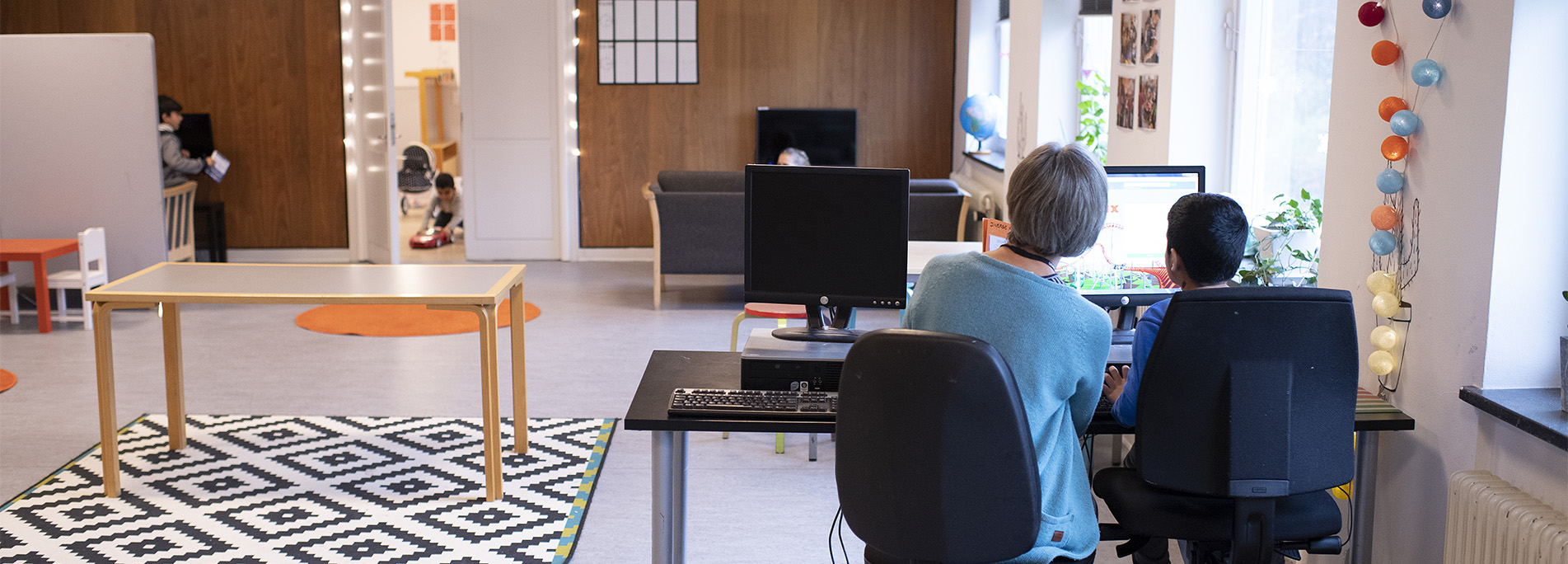About SAFE e-learning courses
SAFE e-learning courses aim to enhance the knowledge and skills of professionals and family-based carers (foster carers and kinship carers) who provide care and support to unaccompanied and separated children in Europe.
SAFE training guides
SAFE training guides (handbooks) are to equip care professionals and family based carers with the necessary knowledge and tools and enable them to provide better support and meet the needs of unaccompanied and separated children across UK, Denmark, Greece and Cyprus. The training guides (handbooks) are structured to offer information on SAFE training modules, current country-specific processes, challenges and guidelines for those who work with these children as well as additional tips and tools on how to facilitate future trainings.
Who are these courses for?
SAFE e-learning courses are developed to address the learning needs of:

Family-based carers (commonly referred as foster carers and kinship carers): those who look after unaccompanied and separated children as their primary carers.

Care professionals: those who work with unaccompanied and separated children, such as social workers, childcare/youth workers, psychologists, law practitioners, non-profit organisation professionals/volunteers etc..
Additionally, SAFE e-learning courses maybe useful for a wide range of professionals and individuals who wish to enhance their knowledge on the issues related to unaccompanied and separated children in Europe.
Course Structure
Each of the two e-learning courses comprised of two modules:
Core module: this module aims to provide an introduction to overall understanding of the situation of the unaccompanied and separated children, their multidimensional needs and a general approach for working with this group of children.
Country-specific module: (individual modules for the UK, Greece, Denmark and Cyprus) this module is tailored to cater for particular country contexts and provide information on national legal frameworks on asylum as well as on care provisions. *Please be informed that there is e-learning module for family-based carers in Cyprus The e-learning modules are estimated to take between 60 -90 minutes to complete. However, it may vary from one person to another.
General learning outcome
Upon completion of the course, the learners are expected to have a good understanding of the situation of unaccompanied and separated children, an overview of their specific needs and knowledge on how to address them. Learners will also acquire country-specific information and resources related to care framework in their respective countries.
About the developers of e-learning courses:
These e-learning courses have been developed within the framework of SAFE* project which is co-funded by the Rights, Equality and Citizenship (REC) Programme of the European Union. SAFE is implemented by a consortium of four partners consisting of the British Red Cross (UK)- the project lead, CARDET – Centre for Advancement of Research and Development in Educational Technology (Cyprus), KMOP – Family and Childcare Centre (Greece) and the Danish Red Cross (Denmark). The content of these e-learning courses represents the views of the partners of SAFE only. The European Commission cannot be held responsible for any use which may be made of the information contained therein.
Key terms:
Unaccompanied child: A child who has been separated from both parents and other relatives and is not being cared for by an adult who, by law or custom, is responsible for doing so.
Separated child: A child who has been separated from both parents, or from their previous legal or customary primary caregiver, but not necessarily from other relatives.
Family-based care: a care that is provided in a family environment by foster carers, kinship carers, and Dublin family caretakers.
Foster carer: A non-related family carer (people not known to the child) who looks after the child in the host country; arranged and supervised by a competent authority of the country. Foster care can be on short-term or long-term basis.
Kinship carer: A carer who is next of kin or known to the child. They are often relatives such as grandparents, uncles or siblings, step-parents or other adults who have a connection to the child, such as neighbours or a close friend of the child’s family. A kinship carer may or may not have accompanied the child throughout the journey from their country of origin to the host country.

